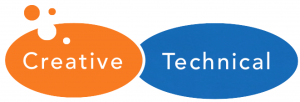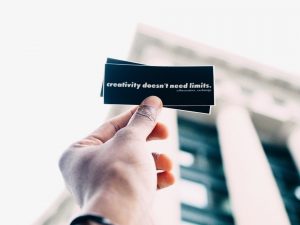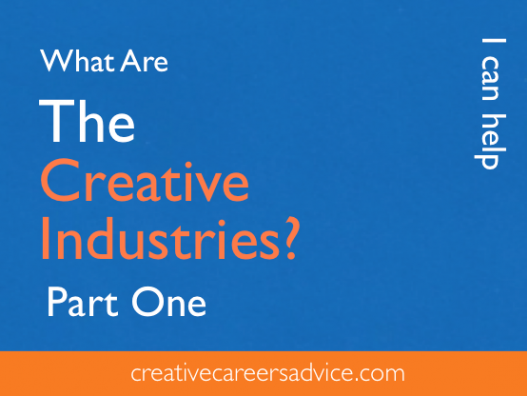Whatever your situation, as someone thinking about or already investing in a career in and around the Creative Industries, it can be challenging to know where to start and understand what they are looking for in a potential employee.
Setting your sights on a particular career means you need to find out as much information about the industry your looking to work in.
It makes strategic sense to take time to understand what it does, how it works and the kind of people who work in it, enabling you to make the most informed decisions you can, before investing in expensive education and training courses, applying for that dream job or thinking of a major change of career.
This blog aims to give you a broad insight into the incredible range of multiple, generalist and specialist skills it involves and demands of its practitioners. It will give you advice on how to start your promotional campaign and strategies to help succeed in your career choices.
In a nutshell what employers are looking for:
a curious mind and great ideas;
the passion to inspire & inform, create, present & communicate,
with originality, self confidence, adaptability, understanding
and a love of working with like-minded people and the craft
The Comfort Zone Consider whether you recognise these attributes in yourself and your work so far and feel good about them - are they an inherent part of you? Or is it something you aspire to in the future?
Getting under the skin of a profession and it's 'personality' if you like, is essential if you want to succeed in entering its domain. Perhaps these attributes go some way to help define the creative psyche!
If you keep these in mind as a useful guide when approaching your promotional strategy and engaging with industry, you’ll be close to understanding what professional creatives look for and start speaking their language and making the right kind of connections in the best possible way.
"The Creative Industries is not a destination, it's a continuous journey and opportunity"
Albert Mensah, Founder of Fortune Favours Productions
Industry Focus
“The creative industries are growing and if they keep growing at the same pace, they could create 900,000 new creative industries jobs by 2030. This gives so much scope for budding creative students to find a place in the industry. The flip side of this is that you need to be able to change and adapt to and in these situations.” Pearson Business School
The current range of Creative Industry sectors:

Careers in this industry could easily be seen as predominantly technically based… with its cutting edge, high-end digital production tools. So it's reasonable that you may assume learning new technical skills are an essential part of the skillset, which is a smart thing to do, given the integral part technology plays in our every day lives.
So do creative industry employers want people with these high tech skills more than any other skills? The clue’s in the title…
The term ‘Creative Industries’ describes businesses with creativity at their heart
Its much more a diverse range of careers, combining creation, production and commercialisation means it’s more a fusion of multiple skillsets.

It’s blend if you like, of creative and technical skills ‘Createch’ - https://www.thecreativeindustries.co.uk/createch that’s clearly reflected in the diversity and range of job opportunities available.

Job Opportunities In the Creative Field
You could be designing:
Book illustrations, kids cartoons, tech wearables, copywriting for promotional campaigns, motion designing for videos and TV, screenwriting for films, creating 3D & effects for film, television and games, designing and advertising products, creating apps and website designs… The Creative Industries has of course, also embraced the world of artificial intelligence, 5G and VR opening up further incredible career possibilities.
Converging Skills
You need to be aware when looking to apply for a job that many companies and areas within the creative industries combine multiple skills to find more effective and workable solutions in one space. This means these companies look for people who have a particular combination of skills, interests and experiences. Which of course makes you in time, become more multi-skilled and more employable…
As one company puts it in their promotion:
“Our name ‘Convergent Technology’ has always felt like a good fit for that goal, as it highlights the idea of bringing things together on a single platform rather than the more traditional approach of using separate, complicated, and unwieldy technology" https://www.convergenttechnology.com/
So when applying for a particular position, read the job specification carefully, is it asking for a particular blend of skills that you may have started learning or hadn’t considered but interested in developing? Think about how the job might expand your future potential, knowledge and experience…
Multiple Career Paths

It’s important to recognise that there are many career path the creative industries offer. You may initially join a big company, or be snapped up by a smaller agency. You could consider a ‘portfolio career' - mixing different types of employment opportunities as you progress in this industry or others, and you might work as a permanent, part-time or freelancer; all these options are open to you and can definitely lead to a successful, fulfilling and financially rewarding career.
Consider Other Industry Options
Remember there are multiple opportunities outside the Creative Industries as well, in different industries calling for people with creative skills. Exploring and combining your skillset with other disciplines increases your options:
For instance in:
Retail Where creativity is particularly important, employing visual merchandisers - making produce look attractive in stores.
Engineering Creating designs and solving technical problems.
Banking Many banks have creative teams, where you could be responsible for marketing, information services, customer experiences and branding.
“For decades, banking jobs have seldom been the career choice in the minds of creatives. But creatives may be surprised to learn that today, imagination, creative thinking and problem solving are core skills required to be successful in banking..." SG:D I Talent
“Perhaps the most important quality, the one that is most consistently present in all creative individuals, is the ability to enjoy the process of creation for its own sake.”
From Creativity: ‘The Work and Lives of 91 Eminent People’, by Mihaly Csikszentmihaly

Action Points: Consider how much information and background knowledge you have gathered about the jobs your interested in. Have you contacted a professional working in that field? Do you understand the balance of creative and technical skills required? And how to use your soft skills to engage effectively to inspire and create interest in you?
All photographs in this blog are courtesy of: Unsplash - https://unsplash.com/
© Paul Butler is Creative Careers Adviser, Design Director and HE Lecturer in employability and Creative Industry careers.
For one-to-one creative careers advice and coaching contact me at: paulb@creativecareersadvice.com
If you found this blog useful share it with your contacts and follow me for more posts on creative careers advice and employability topics.
Related articles: 'Confidence In Public Speaking' and 'Pitch & Presentation'
Why not sign up for membership of Tern Heads: https://ternheads.com/ A creative community of peers and professionals, dedicated to entry-level talent. We offer a network of accessible opportunities and a space to showcase your work to potential employers.
